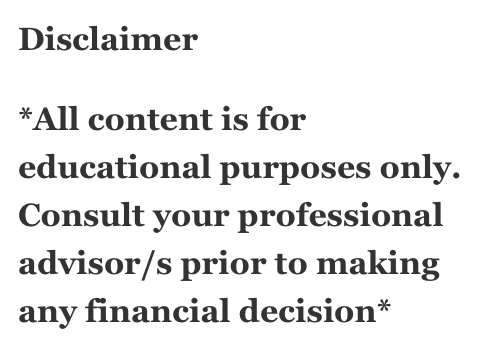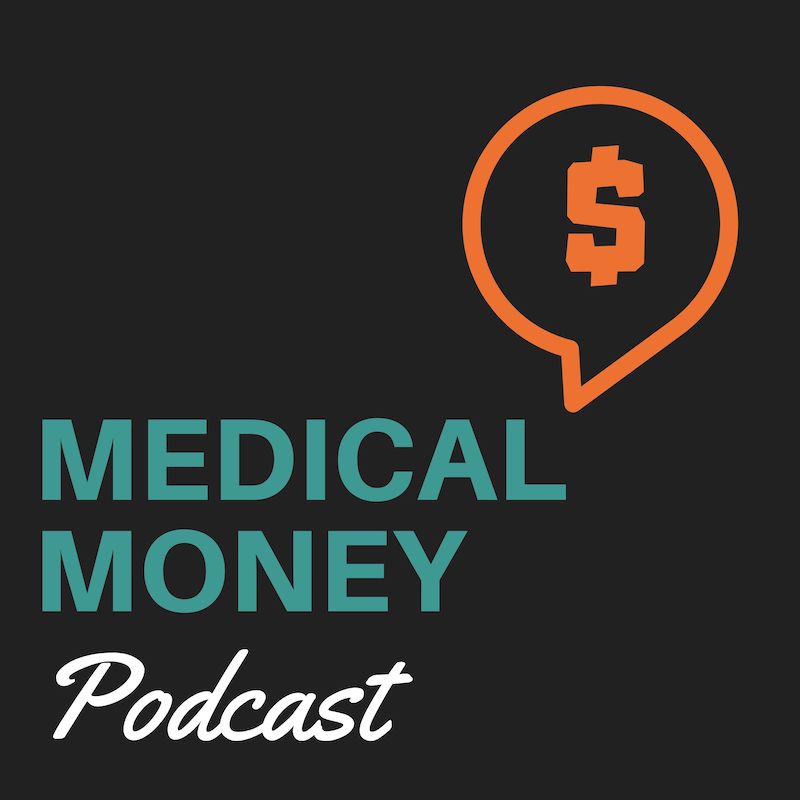Who’s going to look after you and your money when you can’t?
This is the fifth and final post in my Money Vital Signs series- 5 short posts to understand your financial status quo.

Much of my work in anaesthesia is about being prepared for critical events that can be life-changing. Anaphylaxis, cardiac arrest and major hemorrhage do not happen commonly, but when they do, I’ve got to have a plan available and ready to go.
I hope for the best while being prepared for the worst.
Having contingency plans in our own lives is just as relevant.
In this post we will discuss:
- Wills
- Power of Attorney
- Advance Care Directive
It’s our duty as responsible adults to have a will, power of attorney and advanced care directive. Their existence allows our surviving loved ones to deal with essential issues during difficult circumstances.
I created my first will in 2013 after returning from fellowship and reviewed it in 2018 after the birth of our second child. In the intervening
The process of creating and reviewing these documents with an Estate Lawyer is both daunting and rewarding.
As a parent of young children, walking down the mineshaft of all possible calamities made me realise that my life has become less about me and more about providing security for my family.
What is a Will & Why Is It Important?
A will is a legal document that describes how you want to distribute your hard-earned money and assets when you die.
You can choose whether your children, spouse, extended family, friends, charitable cause or a trust structure inherits those goodies you’ve accumulated.
You also need to elect an Executor- the key person who will enact your wishes.
By clearly describing how you wish to distribute your assets, you can minimise disagreements and significantly improve the tax consequences of your heirs.
Surprisingly over 50% of Australians do not have a valid when they die. In legal terms, they die “intestate”.
Should this happen, the deceased’s assets are distributed according to the intestacy laws of the State.
The law dictates a specific order of inheritance and who will receive the proceeds of the estate.
What is an Enduring Power of Attorney and Why Is It Important?
An Enduring Power of Attorney is a legal document that appoints a person to manage your assets and financial affairs in the event you become impaired mentally or physically.
By selecting someone you know and trust, you can clearly explain how your financial affairs should be managed if you became incapacitated. If you haven’t elected a Power of Attorney, the state will appoint a financial administrator to make decisions on our behalf. Decisions are reported to the Public Trustee.

What Is An Advanced Care Directive & Why Is It Important?
An Advanced Care Directive is a legal document that allows you to state your preferences for future health care should you become incapable of making these decisions. It also encompasses end of life decisions, living arrangements and personal matters.
You also appoint a substitute decision-maker to act on your behalf.
It has replaced the Medical Power of Attorney.
Having an Advance Care Directive helps your surviving loved ones make decisions in line with your wishes.
There are different Advanced Care Directive documents for each State.
Record Your Vitals #5 – What Plans Do You Have In Place?
Now it’s time to look at how your life will be managed should you die or become incapacitated.
Click to download the Medical Vital Signs spreadsheet and go to the Estate Planning tab.
Step 1- Wills
- Do you have a will?
- When was it last reviewed and is it current?
- Who is your Executor?
- Who has a copy of it?
Step 2- Enduring Power of Attorney
- Do you have one?
- Who have you appointed to make financial decisions on your behalf?
- Who has a copy?
Step 3- Advanced Care Directive
- Do you have an Advanced Care Directive?
- Does it currently reflect your current wishes?
- Who is your substitute decision-maker?
- Who has a copy?
It’s worth having an electronic copy of each of these so it’s easily accessible. It also makes sense to give a copy to the key people you’ve selected to act on your behalf. Commonly your Estate Lawyer and accountant may also have a copy.
Haven’t Created These Documents?
If you haven’t created each of the above, this could be an excellent time to contact an Estate Lawyer.
It’s essential to set up your Will and Power of Attorney properly.
Although a Will kit is a cheap option, it’s unlikely to have enough customisation for the average doctor.
Congratulations! You have now completed each of your Money Vital Signs. I hope that the exercise has given you an insight into the current state of your finances. You are now empowered with the knowledge to make better financial decisions in the future.


